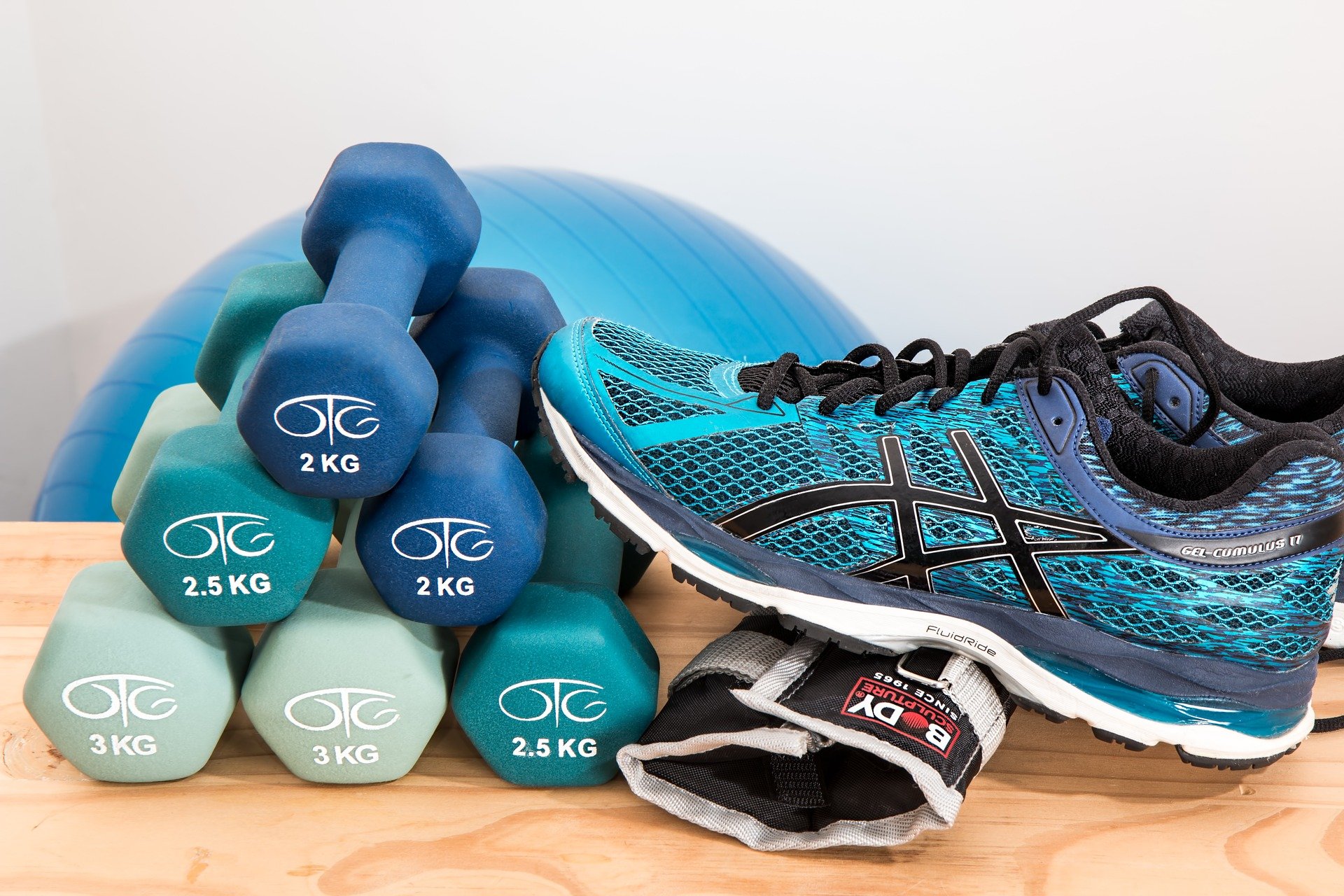Factors That Can Actually Influence Your Metabolic Rate and Fat Burning
Do you ever wonder why it’s so hard to lose weight? Even if you eat healthy and exercise regularly, you may find that the number on the scale doesn’t budge. The reason for this is that many factors can influence your metabolic rate and fat burning. Also, if you’re considering boosting metabolism with supplements, you need to talk to your doctor. As a matter of fact, if you can align your effort and weight loss strategy with these factors, you’ll see a significant result. So keep reading. We’re about to show you the main factors that affect your metabolism. We will also provide tips on optimizing your metabolism and burning more fat.
Hormonal Factors That Affect Metabolism
Several hormones play a role in metabolism, including insulin, thyroid hormone, and cortisol. Let’s take a closer look at each one. Insulin is a hormone produced by the pancreas. It helps to regulate blood sugar levels. When you eat foods that contain carbohydrates, your body breaks them down into sugar. This sugar then enters your bloodstream and causes your blood sugar levels to rise. In response to this, your pancreas produces insulin to help move the sugar from your blood into your cells, where it can be used for energy.
Physical Activities
Aside from what you eat, how much physical activity you get also plays a role in your metabolism. When you exercise, your body has to work harder to maintain your body temperature and pump blood to your muscles. This causes your body to burn more calories, leading to weight loss. In addition, regular exercise can help to build muscle. On top of that, muscle tissue burns more calories than fat tissue, so having more muscle can help to boost your metabolism.

Environmental Factors
The temperature of your environment can also affect your metabolic rate. When it’s cold, your body has to work harder to maintain its core temperature. This means that you burn more calories in a cold environment. On the other hand, being in a warm environment can make you feel sluggish and cause your metabolism to slow down. Not only that but being in a hot environment can also lead to dehydration, which can further slow down your metabolism.
Muscle Mass
Muscle mass is another factor that can influence your metabolic rate. As we mentioned before, muscle tissue burns more calories than fat tissue. So, you’ll have a higher metabolism if you have more muscle mass. On the other hand, if you have less muscle mass, you’ll have a lower metabolism. Not only that, but muscle mass also declines with age. So, suppose you don’t make an effort to maintain your muscle mass as you get older. In that case, your metabolism will gradually slow down.
In short, many factors can influence your metabolic rate and fat burning. If you want to optimize your metabolism, you need to consider all of these factors. You can do this by eating a healthy diet, exercising regularly, and getting enough sleep. Also, make sure to talk to your doctor before taking any supplements.…



 One of the best ways to lose weight is to monitor your calorie intake. You can do this by tracking what you eat in a food journal or using a calorie counting app. This will help you make sure that you are not overeating and help you make healthier choices.
One of the best ways to lose weight is to monitor your calorie intake. You can do this by tracking what you eat in a food journal or using a calorie counting app. This will help you make sure that you are not overeating and help you make healthier choices. Fiber is an important nutrient that can help with weight loss. Foods high in fiber include fruits, whole grains, and beans. Fiber helps to keep you feeling full after eating, so you’re less likely to overeat. Aim for at least 25 grams of fiber per day. If you’re struggling to get enough fiber in your diet, you can also take a supplement.
Fiber is an important nutrient that can help with weight loss. Foods high in fiber include fruits, whole grains, and beans. Fiber helps to keep you feeling full after eating, so you’re less likely to overeat. Aim for at least 25 grams of fiber per day. If you’re struggling to get enough fiber in your diet, you can also take a supplement. The other step to losing weight after giving birth is to get some exercise. Exercise will help you burn calories and tone your muscles. You can start slowly with a walk around the block or a short workout at home. As you get stronger, you can add more challenging workouts to your routine. Exercise is also good for your mental health. It can help you reduce stress and improve your mood. If you can find the time for a workout, you’ll be better off mentally and physically.
The other step to losing weight after giving birth is to get some exercise. Exercise will help you burn calories and tone your muscles. You can start slowly with a walk around the block or a short workout at home. As you get stronger, you can add more challenging workouts to your routine. Exercise is also good for your mental health. It can help you reduce stress and improve your mood. If you can find the time for a workout, you’ll be better off mentally and physically.
 The truth is that no matter what shoes you wear, you can get hurt during your workout. However, if you wear the right shoes for your specific workout, you are less likely to get hurt. This is because certain types of training shoes are designed for specific movements.
The truth is that no matter what shoes you wear, you can get hurt during your workout. However, if you wear the right shoes for your specific workout, you are less likely to get hurt. This is because certain types of training shoes are designed for specific movements. Different types of shoes offer different levels of support. For example, while weightlifting shoes are made to keep your ankles steady, basketball shoes are made to take the weight off your ankles as you go walking, jogging, or running. As such, stability shoes are meant to support the foot that helps the runner’s foot keep to the ideal gait line.
Different types of shoes offer different levels of support. For example, while weightlifting shoes are made to keep your ankles steady, basketball shoes are made to take the weight off your ankles as you go walking, jogging, or running. As such, stability shoes are meant to support the foot that helps the runner’s foot keep to the ideal gait line.


 With VR, medical staffs can create any operation and conduct it easily. Simulation of procedures, treatment of phobias, operation of robots, and some others are quickly adopted—the unique advantages of cooperation with virtual reality technologies in healthcare. The developers of digital reality technologies can create many benefits for the health of the user. It is excellent in today’s world and promotes the health process. It changes the user’s size and includes the first VR (Virtual Reality) gesture.
With VR, medical staffs can create any operation and conduct it easily. Simulation of procedures, treatment of phobias, operation of robots, and some others are quickly adopted—the unique advantages of cooperation with virtual reality technologies in healthcare. The developers of digital reality technologies can create many benefits for the health of the user. It is excellent in today’s world and promotes the health process. It changes the user’s size and includes the first VR (Virtual Reality) gesture.

 If your system becomes paralyzed while you sleep, it becomes a state of anxiety. The human body works on high alert, which leads to an increase in blood pressure and the production of hormones. Learn relaxation techniques to counter the effects of anxiety and sleep faster. On the other hand, higher stress hormones caused by lack of sleep increase inflammation in the body. In turn, it creates risk for heart-related conditions, as well as cancer and diabetes. Inflammation is thought to cause the body to deteriorate as we age.
If your system becomes paralyzed while you sleep, it becomes a state of anxiety. The human body works on high alert, which leads to an increase in blood pressure and the production of hormones. Learn relaxation techniques to counter the effects of anxiety and sleep faster. On the other hand, higher stress hormones caused by lack of sleep increase inflammation in the body. In turn, it creates risk for heart-related conditions, as well as cancer and diabetes. Inflammation is thought to cause the body to deteriorate as we age.

 While there is conflicting research regarding apple cider vinegar impacts on obesity and weight loss, based on a Western Journal of Clinical Nutrition study, apple cider vinegar can lower the amount of calories consumed in a meal by between 200 and 275. Further study results also revealed that ginger helped with weight reduction in overweight people.
While there is conflicting research regarding apple cider vinegar impacts on obesity and weight loss, based on a Western Journal of Clinical Nutrition study, apple cider vinegar can lower the amount of calories consumed in a meal by between 200 and 275. Further study results also revealed that ginger helped with weight reduction in overweight people.
 The nerve is made up of 5 nerve roots coming out of the lower spine. They join together to form the sciatic nerve because these nerve roots leave the spine. This nerve works. When the sciatic nerve passes through the gluteal region, it also passes directly through or under changes from person to person, the pyriform muscle.
The nerve is made up of 5 nerve roots coming out of the lower spine. They join together to form the sciatic nerve because these nerve roots leave the spine. This nerve works. When the sciatic nerve passes through the gluteal region, it also passes directly through or under changes from person to person, the pyriform muscle. It may be the case if you think that sciatica starts in the buttock area and not in the spine. If the pain starts in the buttocks, a pyriform muscle may be primarily responsible for sciatica. The introduction of a pyriform tract should help you to resolve your pain if this is true.
It may be the case if you think that sciatica starts in the buttock area and not in the spine. If the pain starts in the buttocks, a pyriform muscle may be primarily responsible for sciatica. The introduction of a pyriform tract should help you to resolve your pain if this is true.